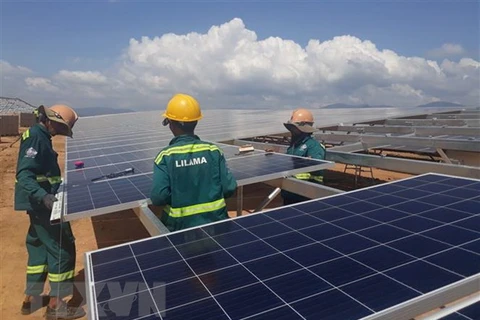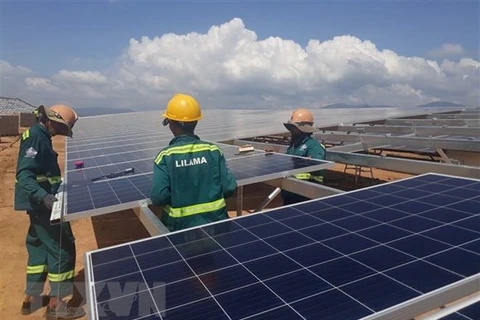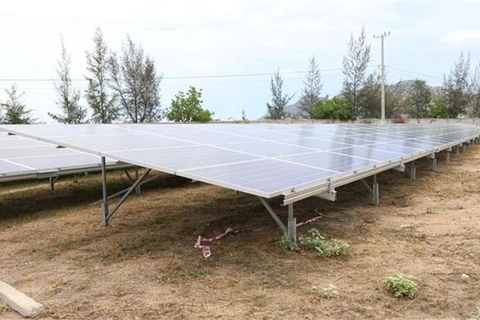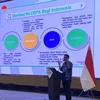Hanoi (VNA) - Indonesia should shift to using renewable energy in the context that the country’s oil and gas industry is facing difficulties, according to The ASEAN Post.
Such a move would not only save costs, it would also be beneficial for future generations to come, said an article on The ASEAN Post.
Indonesia’s oil and gas industry has seen turbulent times over the last 10 years, with the 2008 financial crisis as a turning point for the industry as a whole, according to the article.
The country’s oil and gas sector used to be one of the highest contributors to the Indonesian economy. The contribution of oil and gas to Indonesia’s national revenue experienced the sharpest decline during the oil crisis which occurred during 2014 to 2015.
Despite a growing economy with increasing demand for energy, the oil and gas sector in the country is shrinking, with its glory days long past. According to an analysis of Indonesia’s oil and gas sector last August, investment for oil and gas exploration in Indonesia contracted to 100 million USD in 2016, down from 1.3 billion USD in 2012, said the article.
The article cited PwC’s Oil and Gas in Indonesia 2017 report, highlighting that Indonesia is facing a depletion in oil resources, and is facing difficulty discovering new reserves as well. In a way, this may represent a chance for Indonesia to move away from fossil fuels and to invest further in renewable energy.
Indonesia is already trying to refocus its efforts towards consolidating its geothermal resources. At the moment, according to the International Energy Agency (IEA), Indonesia is the third-largest geothermal power producer in the world. The Energy Ministry plans to raise the nation’s geothermal production capacity to 5,000 MW by 2025. The increase in geothermal energy could see a decrease in Indonesia’s reliance on oil, said the article.
Aside from that, the Indonesian government has announced that it is looking to convert old oil refineries into biodiesel plants, hoping this move would reduce energy imports and improve the country’s current account deficit.
The International Renewable Energy Agency (IRENA) noted in a 2017 report that Indonesia has set a goal to achieve 23 percent renewable energy use in its total energy supply by 2025, with the target rising to 31 percent by 2050.
According to the IRENA report, Indonesia has the potential to meet its target even sooner, by 2030. IRENA also notes that an accelerated pursuit of Indonesia’s target could see associated economic benefits to the country as a whole. These include the reduction of energy systems costs as well as the costs of air-pollution and carbon-dioxide emissions, which would help the country save up to 53 billion USD per year by 2030 – about 1.7 percent of its projected gross domestic output in 2030.-VNA























